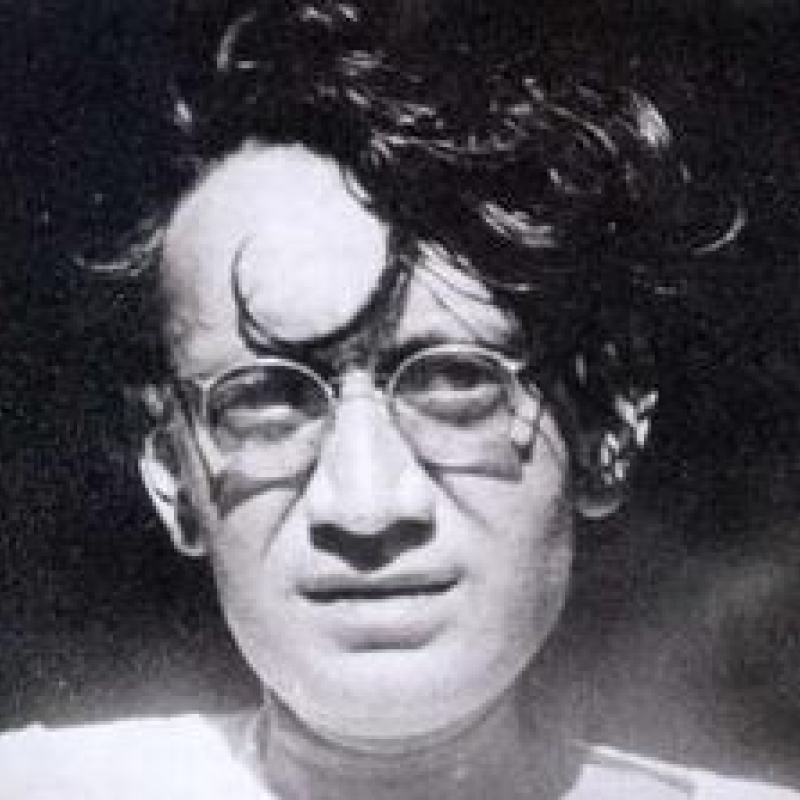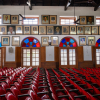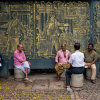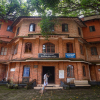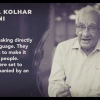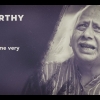Saadat Hasan Manto was constantly at war with himself. Following the footsteps of Dr Jekyll and Mr Hyde, the iconic writer separated Saadat Hasan, the person, from Manto, the writer. We take a close look at the ‘one–two’ man, who was at times unheroic and self-contradictory, yet brutal and free-spirited. (Photo Source: Wikimedia Commons)
Shortly before his death in Lahore, Pakistan, in 1955, Saadat Hasan Manto wrote a sketch about himself. In the 43 years that he lived and published—among 22 collections of short stories, a novel, five collections of radio plays and two collections of sketches of famous personalities—this was the first time Manto was writing as his doppelganger. In Manto on Manto (1951), he wrote, ‘We were born together and I suppose we will die together. But it may also come to pass that Saadat Hasan may die and Manto may not. I have never seen a “one–two” man like Manto in my entire life.’[i]
How the Manto aspect of his personality came about cannot be delineated, but the writer considered himself nothing more than a first-class fraud. Hamid Jalal, Manto’s nephew, wrote an article about how ‘Manto’ had ceased to become a family name and was more of a literary trend or personality that distinguished the man from the writer. This personality, influenced by writers such as Oscar Wilde and George Bernard Shaw, imagined himself as a Pygmalion-type figure, all the while following the footsteps of Mr Hyde or Frankenstein. Manto firmly believed in the fact that what mattered was not what was said, but who said it.
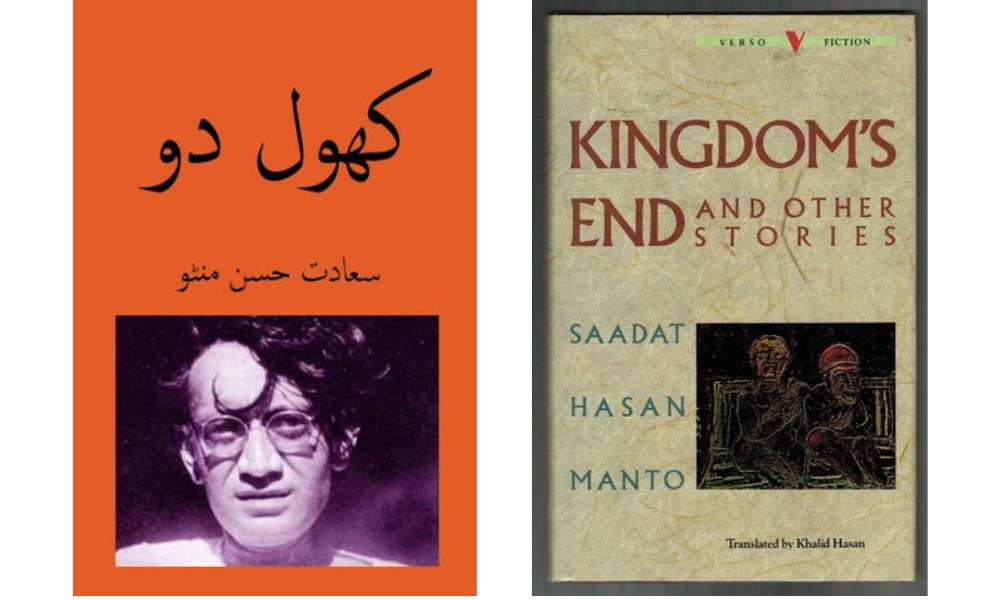
Manto failed his school-leaving examination twice and ironically, one of the subjects he was unable to pass was Urdu—the language in which he came to produce a powerful and original body of work (Photo Source: Goodreads)
Saadat, who hailed from a middle-class Kashmiri family from Amritsar, showed little enthusiasm for formal education. He failed his school-leaving examination twice. Ironically, one of the subjects he was unable to pass was Urdu—the language in which he came to produce a powerful and original body of work. In his personal sketch, he mentioned that ‘Saadat’ could only laugh at the vast and varied oeuvre of Manto, as the former never understood Urdu well. He believed that that was why there was a paucity of beautiful words in his writing—‘he runs after words as a man with a net chases butterflies without catching them.’[ii]
Saadat lived in a modest little flat in Bombay (now Mumbai)—a city that went on to become his lifelong muse—where he spent some of the happiest days of his life before Partition. The main attraction at the dinner table was Saadat’s witty conversation and unobtrusive hospitality. He always had countless stories in his pocket. But writing them had not been easy. In his sketch, Saadat wrote:
When Manto has to write a story, he thinks about it the night before, though nothing comes to him. He will get up at five in the morning and try to extract a story from the day’s newspapers. But it does not work; so he goes to the bathroom where he tries to cool his turbulent head with water so that he can think. When this does not work, he starts to argue with his wife without any reason. When that does not work either, he walks out of the house to buy betel leaf. The betel leaf continues to rest on his table and he still finds himself without a subject. In the end, by way of revenge, he will pick up a pen or a pencil and inscribe the numbers 786 on top of the page and whatever comes to his mind then becomes the starting point of a story.[iii]
Also Read | Progressive Writers' Association
Apparently, ‘Babu Gopi Nath’, ‘Toba Tek Singh’, ‘Hattak’, ‘Mummy’, ‘Mozail’ and other short stories—all considered his masterpieces—were written ‘in the name of Allah’. It is quite surprising to fathom how a writer who wanted his epitaph to be ‘Under tons of earth he lies, wondering who of the two is the greater short story writer: God or he’, could find spiritual redemption in a Partition-torn subcontinent that had turned homes alien and neighbours into murderers. In a note to his readers written in 1951, Manto wrote, ‘I, who often deny the existence of God in one stroke, become a believer on paper.’[iv]
But such was Mantoiyat or the Mantoesque—unheroic, at a constant struggle with one's identity, self-contradictory yet brutal and free-spirited. He wrote what he saw and took no sides. This was most evident during his impoverished days in post-Partition Lahore. At that time, everyone with even the slightest influence was engaged in grabbing properties abandoned by non-Muslims who had moved to India. On account of being branded a communist plotting to overthrow established authority as well as an undesirable progressive due to the publication of banned stories such as ‘Thanda Gosht’ (Cold Meat) and ‘Khol Do’ (Open It), the returned-from-Bombay Manto was left with nothing. Starved of money, Manto began to write his reminiscences of the good old days when he was a screenwriter in Bombay. It was during this time that he wrote sketches of Ashok Kumar, Nawab Kashmiri, Paro Devi and numerous others.
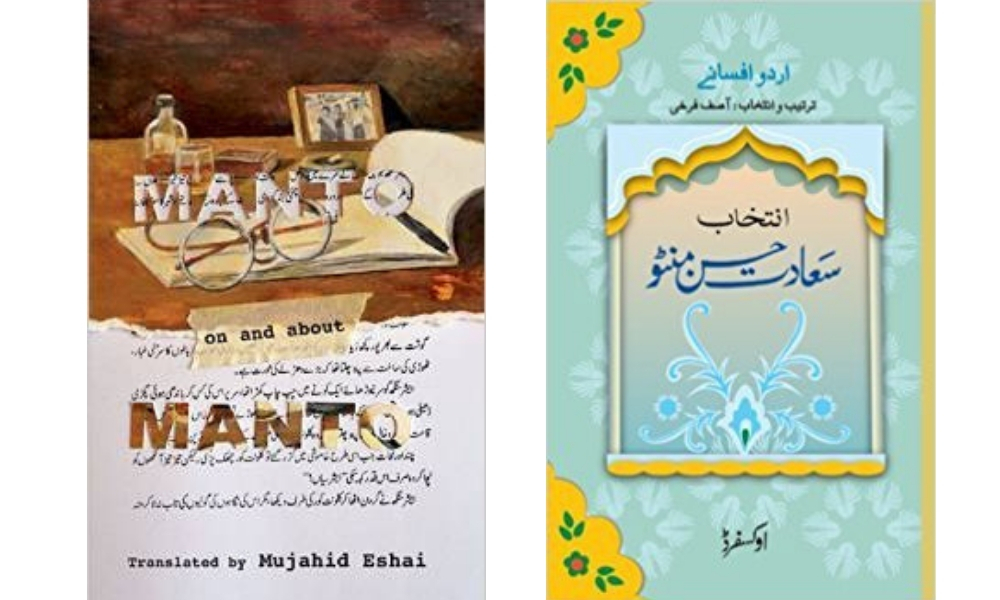
Influenced by writers such as Oscar Wilde and George Bernard Shaw, Manto imagined himself as a Pygmalion-type figure, all the while following the footsteps of Mr Hyde or Frankenstein (Photo Source: Goodreads)
Besides this, Saadat’s last years in Lahore were also spent drinking obsessively. He would even hide bottles of whisky behind his commode. Friends and family members have written about how they found it antithetical to Manto, who could get down to writing a story only when he was sober. Manto, who is always pictured in his snow-white starched kurta and pyjama, could never sit down to type without cleaning his typewriter. He took his last breath, far away from his muse, after losing prestige and steeped in financial debt, sipping from a quarter bottle of whisky. In fact, for 35 years after his death, Saadat’s family never received even a single penny from his publishers.
Any piece of writing on Manto always runs the risk of giving a reductionist impression. He wasn't simply a writer of Partition and prostitutes, or the walking-talking embodiment of Bombay in Urdu fiction or the highly ideological litterateur who did not spare even the Progressive Writers’ Association. In his lifetime, he was branded a ‘communist’ and a ‘pornographer’ by the government, a ‘reactionary’ by the communists, and one of the greatest short-story writers ‘who did not let his pen rest idle even during the great crisis (of Partition)’ by both—all at the same time.
Views expressed are personal. This article was also published on Scroll.in
Notes
[i] Vibha Chauhan and Khalid Alvi, trans., Manto Saheb: Friends and Enemies on the Great Maverick (New Delhi: Speaking Tiger Books, 2019).
[ii] Ibid.
[iii] Ibid.
[iv] Ayesha Jalal, The Pity of Partition: Manto’s Life, Times, and Work across the India–Pakistan Divide (Princeton: Princeton University Press, 2013).
